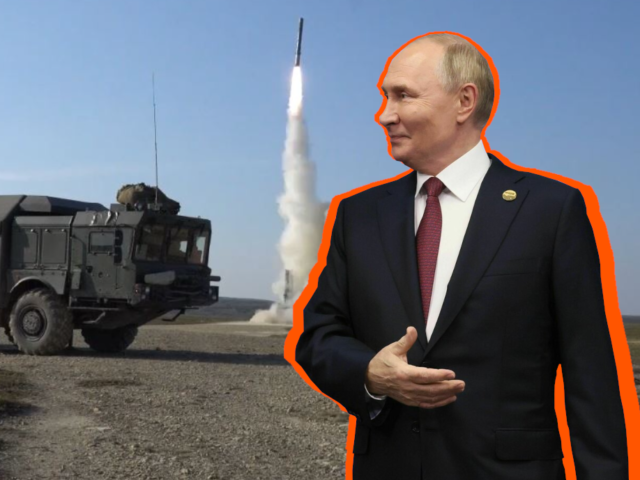Russia has updated its nuclear doctrine, stating that in some circumstances attacks against it with conventional weapons will be considered sufficiently threatening to launch a nuclear retaliation.
Today is the 1,000th day since Russia attempted a blitz attack to capture Kyiv and other key Ukrainian cities, meeting stronger than expected resistance and logistical difficulties, leading to a bloody near-three year war. Following an apparent signal that the United States in the dying days of the President Joe Biden administration is willing to step up the war by permitting Ukraine to use American long-range missiles to strike deep inside Russia, the Russian Federation has articulated that it could consider such attacks a matter for nuclear retaliation.
Ukraine wasted no time, however, and it is claimed they made their first long-range missile strike on the Russian interior this morning.
Russian President Vladimir Putin signed the nation’s new nuclear doctrine into existence by decree on Tuesday morning, Kremlin state media says. The document, now on its third revision in 15 years, is said to have been prompted by “new military threats” faced by Russia after its decision to re-invade Ukraine.
Per a statement from Moscow: “The amended doctrine expands the range of countries and military alliances subject to nuclear deterrence, as well as the list of military threats that such deterrence is designed to counter”.
Crucially for Western military planners, Russia now considers “any attack” by a non-nuclear country that is supported by a nuclear power — as could be argued is the case with the United State, France, and the United Kingdom’s support of Ukraine — as a “joint attack” and liable to a nuclear response. Such attacks include conventional weapon strikes that threaten Russian “sovereignty” and “large-scale launch of enemy aircraft, missiles, and drones targeting Russian territory”.
As well as Russian territory, the doctrine also encompasses Belarus — which has a considerable border with the European Union — and which has lately been fully locked into the Russian nuclear defence system.
President Putin signing off on the new document has been interpreted specifically as a response to U.S. President Joe Biden allegedly agreeing to allow Ukraine to launch long-range missile strikes deep into Russia’s hinterland. Those claims have yet to be confirmed by the White House, and the new Russian nuclear doctrine has been in the works at least since September, when conversations about the possibility of longer-range Ukrainian strikes with American and European weapons were kicked up a gear.
Nevertheless, Russia reacted with extreme aversion to the claim the White House had signed off on missile strikes, with several Kremlin leaders warning of escalation and even President Putin’s previous claims that such an attack would mean a state of war between the U.S. and Russia.

COMMENTS
Please let us know if you're having issues with commenting.